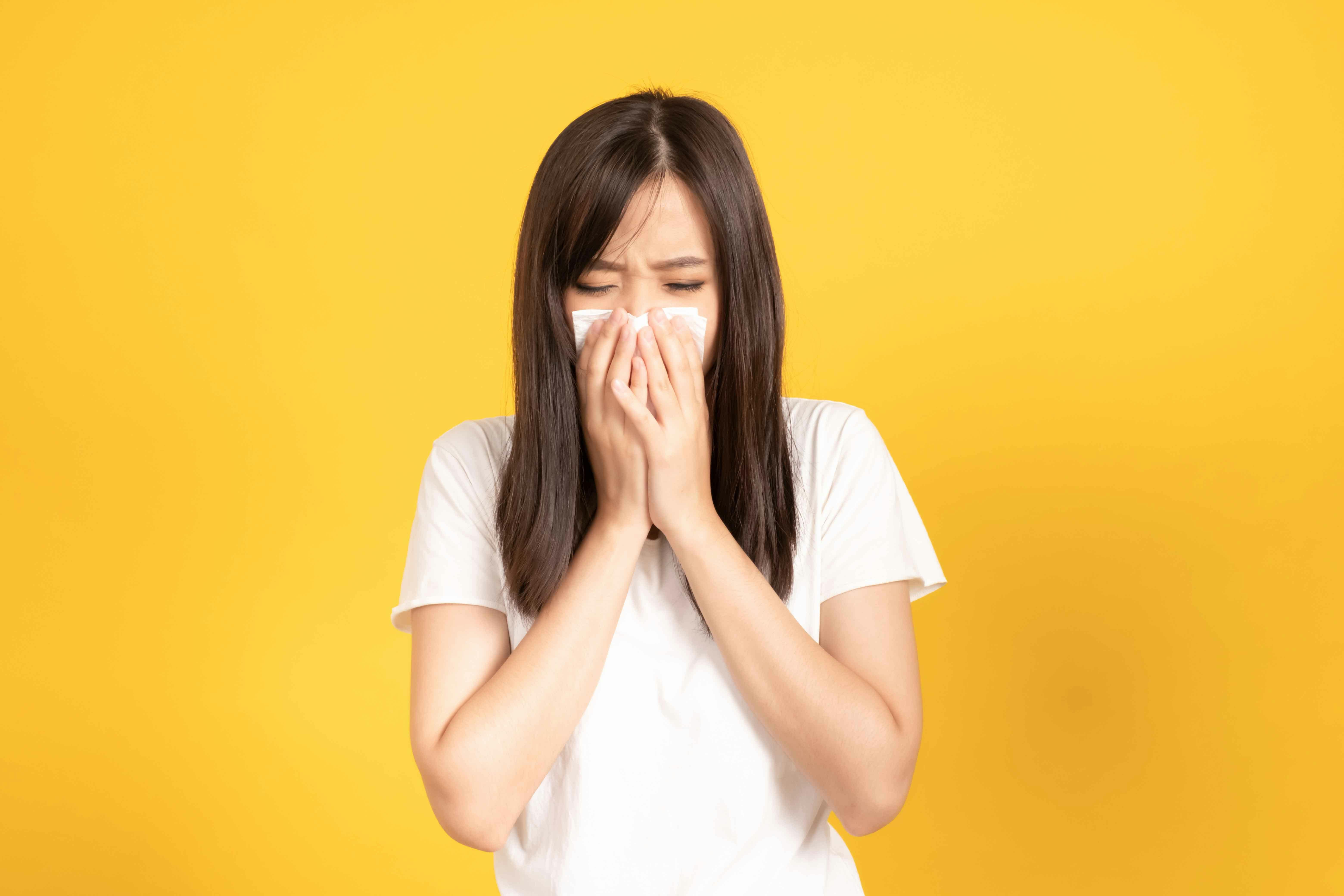
Can You Have Allergies if You Have COVID?
COVID-19 is a viral infection that has cold-like symptoms, which can often be confused for allergies. Protocol and treatment for alleviating the two are vastly different. To combat allergies, people tend to avoid exposure to allergens, pay attention to pollen counts and take over the counter (OTC) medications for relief.1 On the other hand, people who contract COVID-19 must quarantine and may take anti-viral treatments if they are highly susceptible to falling severely ill to the disease.2,3 Learn the differences between allergies and COVID-19, how to help prevent contracting COVID-19 and how to avoid flaring up your allergy symptoms.
Differences Between COVID-19 and Allergies
It’s possible to deal with the symptoms of COVID-19 and allergies at the same time, because of what causes them to occur in your body. COVID-19 is an acute respiratory illness, caused by the SARS-COVID virus. COVID-19 belongs to a family of viruses referred to as Coronavirus. The name “corona” stems from the crown-like spikes on the surface of the virus. SARS-CoV-2, which causes COVID-19, can be contracted from airborne droplets or from transferring the virus from your hands to your face.4 It enters your body through your mouth, nose or eyes, before traveling to your nasal passage and mucous membrane in the back from your throat. It multiplies in cells in back of throat, moves into your lung tissue, and can then spread into other tissues in your body.4
In contrast, allergies are not caused by a virus. Seasonal allergy symptoms are triggered by an exposure to an allergen and are an immune symptom response. If an allergen is inhaled through your throat or mouth, your immune system responds. As a defense mechanism, your immune system will release histamine. This causes inflammation and itchiness in the nose, eyes and throat while it attempts to eject the allergen. Allergens that can trigger this response include the following:1
- Dust mites
- Pollen
- Pet dander
- Mold spores
- Cockroaches
Most allergies are seasonal and are triggered by increased pollen production during certain times of the year.1 Similar to seasonal allergies, food allergies can also elicit inflammation in the nose and mouth.1 In comparing their origins, allergies and COVID-19 are vastly different. Allergies are triggered by seasonal changes and allergens specific to an individual. In contrast, COVID-19 is a viral infection that can be contracted at any time. There are additional differences between their respective symptoms.2
COVID-19 symptoms look different from person-to-person. In some cases, an individual may be completely asymptomatic and still contract the disease. Symptoms typically last up to 14 days for most children and adults and can include the following:4
- Fever or Chills
- Loss of taste or smell
- Cough
- Fatigue or tiredness
- Shortness of breath or difficulty breathing
- Muscle or body aches
- Sore throat
- Nasal congestion or runny nose
- Vomiting
- Diarrhea
- Headaches
Although there is some overlap in symptoms between allergies and COVID-19, certain symptoms present in COVID-19 may never appear in seasonal allergies.2 Nausea, diarrhea, fever and muscle aches are not usually caused by allergens, and they can be attributed to a viral infection, cold, flu or COVID-19. Allergy symptoms do not necessarily subside within in a time frame and can happen all year.1 Allergy symptoms may include the following:1
- Wheezing and difficulty breathing
- Coughing
- Nasal congestion
- Headaches and sinus pain
- Tiredness and fatigue
- Sore throat caused by postnasal drip
- Itchy nose, throat and eyes
Contracting COVID-19 during an allergy season can cause you to deal with both symptoms at once. Despite having some overlap in symptoms, it is certainly possible to deal with both at the same time since they appear differently in the body. You can avoid dealing with both by taking the proper measures to prevent contracting COVID-19 and mitigate allergy symptoms.
How to Help Prevent Contracting COVID-19
The best precautionary measure to avoid contracting COVID-19 is getting vaccinated.4 In addition to getting vaccinated, there are ways to navigate your daily life to help you stay healthy. Some preventive measures include the following:4
- Wash your hands for at least 20 seconds. COVID-19 is spread through airborne droplets or transferred by touching your face. Cleaning your hands can help remove the virus from your person and avoid transferring it into your body.
- Avoid close contact with people who are sick.
- Clean surfaces with a virus-killing disinfectant.
- Wear a well-fitted surgical face mask like an KN95 mask to protect yourself from any airborne droplets.
- Stay away from large crowds of people
- Avoid touching your face.
How to Avoid Allergy Symptoms
Allergy symptoms can’t be fully avoided. However, if you can prevent exposure to allergens, you can reduce the symptoms. Helpful tips to help avoid exposure and reduce your symptoms include the following:1
- Close windows in your home and car.
- Avoid touching your face.
- Wash your hands frequently, especially after playing with pets or being outdoors.
- Protect your eyes from pollen by wearing a hat or sunglasses outdoors.
- Keep your pets off couches, beds and areas you are in frequently.
- Use dust mite covers for pillows, beds and box springs.
If you are experiencing allergy symptoms, try using Flonase Allergy Relief Nasal Spray to help combat your worst allergy symptoms. Allergies and COVID-19 are distinguishable in how they are caused and the differences in their symptoms. Stay aware of what triggers COVID-19 and your allergies to mitigate your symptoms.
Sources:
- Allergic Rhinitis (Hay Fever). Mayo Clinic. https://my.clevelandclinic.org/health/diseases/8622-allergic-rhinitis-hay-fever. Accessed 5/24/2023.
- COVID-19, cold, allergies and the flu: What are the differences?. Mayo Clinic. https://www.mayoclinic.org/diseases-conditions/coronavirus/in-depth/covid-19-cold-flu-and-allergies-differences/art-20503981 Accessed 5/24/23.
- COVID-19 Treatments and Medications. Centers for Disease Control and Prevention. https://www.cdc.gov/coronavirus/2019-ncov/your-health/treatments-for-severe-illness.html. Accessed 5/24/23.
- Coronavirus, COVID-19. Cleveland Clinic. https://my.clevelandclinic.org/health/diseases/21214-coronavirus-covid Accessed 5/24/23.